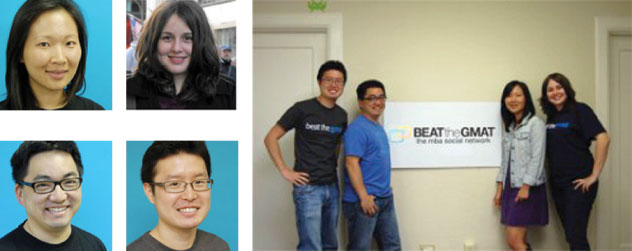|
|
|
ADVERTISEMENTS
|
|
PREMIUM
- HAPPY HOLIDAYS!
- Siliconeer Mobile App - Download Now
- Siliconeer - Multimedia Magazine - email-Subscription
- Avex Funding: Home Loans
- Comcast Xfinity Triple Play Voice - Internet - TV
- AKSHAY PATRA - Bay Area Event - Sat. Dec 6
- Calcoast Mortgage - Home Loans
- New Homes in Silicon Valley: City Ventures - Loden Place - Morgan Hill
- Bombay to Goa Restaurant, Sunnyvale
- Buying, Sellling Real Estate in Fremont, SF Bay Area, CA - Happy Living 4U - Realtor Ashok K. Gupta & Vijay Shah
- Sunnyvale Hindu Temple: December Events
- ARYA Global Cuisine, Cupertino - New Year's Eve Party - Belly Dancing and more
- Bhindi Jewellers - ROLEX
- Dadi Pariwar USA Foundation - Chappan Bhog - Sunnyvale Temple - Nov 16, 2014 - 1 PM
- India Chaat Cuisine, Sunnyvale
- Matrix Insurance Agency: Obamacare - New Healthcare Insurance Policies, Visitors Insurance and more
- New India Bazar: Groceries: Special Sale
- The Chugh Firm - Attorneys and CPAs
- California Temple Schedules
- Christ Church of India - Mela - Bharath to the Bay
- Taste of India - Fremont
- MILAN Indian Cuisine & Milan Sweet Center, Milpitas
- Shiva's Restaurant, Mountain View
- Indian Holiday Options: Vacation in India
- Sakoon Restaurant, Mountain View
- Bombay Garden Restaurants, SF Bay Area
- Law Offices of Mahesh Bajoria - Labor Law
- Sri Venkatesh Bhavan - Pleasanton - South Indian Food
- Alam Accountancy Corporation - Business & Tax Services
- Chaat Paradise, Mountain View & Fremont
- Chaat House, Fremont & Sunnyvale
- Balaji Temple - December Events
- God's Love
- Kids Castle, Newark Fremont: NEW COUPONS
- Pani Puri Company, Santa Clara
- Pandit Parashar (Astrologer)
- Acharya Krishna Kumar Pandey
- Astrologer Mahendra Swamy
- Raj Palace, San Jose: Six Dollars - 10 Samosas
CLASSIFIEDS
MULTIMEDIA VIDEO
|
|
|
|
|
BUSINESS:
Frugal Venture: The $32,000 Start Up
In an age of outsourcing, starting an online business or improving an existing one means founders don’t need technical skills or outside funding, writes Professor Vivek Wadhwa.
 After graduating from Harvard Law School in 1999, David Park founded discussion forum service Coolboard.com. It took more than a dozen software developers, product managers, and quality assurance staff 18 months to build the company’s core technology. To fund it, Park raised $10 million in venture capital, of which $4 million was spent before the company was launched. It went down in flames in 2003, a casualty of the dot-com bust. After graduating from Harvard Law School in 1999, David Park founded discussion forum service Coolboard.com. It took more than a dozen software developers, product managers, and quality assurance staff 18 months to build the company’s core technology. To fund it, Park raised $10 million in venture capital, of which $4 million was spent before the company was launched. It went down in flames in 2003, a casualty of the dot-com bust.
In 2005, Park launched his next business, MBA admissions blog and forum ‘Beat The GMAT’ in San Mateo, Calif. Rather than take venture capital, he limited startup costs, spending just $119,000. The site steadily gained traction, but Park was nervous that technologies like Facebook and Twitter would make it obsolete.
Earlier this year he shifted gears again, embarking on a new version of the site that he describes as a social network for business school applicants. It includes new features such as aggregated GMAT prep and MBA admissions news, a way for members to connect with one another, and social gaming elements to keep members motivated. It makes money advertising test prep services. Amazingly, the new site took only four months and cost just $32,000 in total.
Less than a Luxury Coupe
I was skeptical when Park and his co-founder, Eric Bahn, approached me last year to ask for advice on business strategy for the site. They were convinced they could build a bunch of sophisticated technologies in months—on a shoestring budget. They were determined not to raise venture capital. I had doubts. My two software companies took years and cost millions. Yes, technology is much easier to build today than it was during my tech days. But I meet Silicon Valley startup founders every week who tell me about their ideas and their plans. No one says they can build their products for less than the cost of a BMW 328.
But Park and Bahn did. How? To start with, they crowdsourced the design. Instead of hiring a bunch of marketing people, as tech companies usually do, they asked their user community for volunteers to help conceive a new site. Then they selected a handful of the most eager users and trained them on the basics of Silicon Valley-style product management. Next, Park and Bahn needed to find a designer. They used ‘99designs.com,’ which hosts design competitions, for a two-week contest that attracted hundreds of designers, yielding a design they used as the theme for the new site. The contest, prize, and designer’s time cost $9,200.
They broke up Web development into two tasks: front-end engineering (turning design artwork into code) and back-end engineering (making the code actually function). They built their technology on top of WordPress, phpBB, and Drupal—which are free, open-source platforms. Front-end engineering usually requires sophisticated coding done by contractors who earn as much as $100 an hour. Instead, the Beat The GMAT team turned to a service called ‘PSD2HTML.com’ — which converts Photoshop design files into HTML and CSS code. This service costs $160 to $220 per Web page, totaling $4,500. For back-end engineering, they hired four developers from Hungary and Ukraine on the outsourcing website ‘oDesk.’ They paid $15 to $20 per hour. The entire back-end engineering cost $18,000.

(Above, clockwise from top left): Beatrice Kim, Vice President Marketing; Dana Jinaru, Product Manager; The Beat The GMAT team at their offices in San Mateo, Calif.; Eric Bahn, Founder, VP; and David Park, CEO
In software development, things don’t usually go as planned. Park and Bahn had their share of missed deadlines, buggy code, and product problems. Outsourcing always makes things more difficult, because developers are in different time zones, speak different languages, and don’t always understand what is expected of them. It took many sleepless nights and lots of caffeine to surmount these obstacles.
This brings up another point. If entrepreneurs can build sophisticated technologies so cheaply in the Web world, who needs venture capitalists any more? Software startups often spend the first few months of their existence polishing business plans and pitching investors. They can instead be working with smart people all over the world and focus their energy on perfecting their technologies, as Beat The GMAT did. When law school grads can build successful technology companies—Park says his site has been profitable since its inception, with annual revenue close to $1 million—the notion that website founders need computer programming backgrounds is outdated.
The above article was taken from the author’s blog at www.wadhwa.com and it first appeared in Business Week.
|
 |
Vivek Wadhwa is a Visiting Scholar, School of Information, UC-Berkeley; Director of Research, Center for Entrepreneurship and Research Commercialization, Duke University; Senior Research Associate, Labor and Worklife Program, Harvard Law School; Distinguished Visiting Scholar, Halle Institute of Global Learning, Emory University; and faculty member and advisor at Singularity University. Readers can find his research at www.wadhwa.com.
|
|
|
|
|
|
|